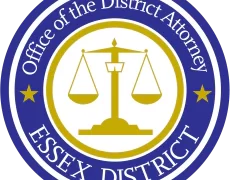GLOUCESTER – On Saturday, August 24th, a Gloucester child was diagnosed with a serious infectious illness caused by Neisseria Meningitidis. The patient is being treated and is recovering. The bacteria that causes this illness can spread between persons of all ages if they are in close contact that involves an exchange of saliva (spit). This can happen through activities such as:
○ Coughing or sneezing,
○ kissing,
○ sharing cigarettes or lipstick,
○ sharing food or sharing eating or drinking utensils such as cups or water bottles,
○ sharing closed space (i.e., car or dorm room)
Working in collaboration with epidemiologists from the MA Department of Public Health and the child’s family, the Gloucester Health Department has notified all known facilities where the individual might have exposed others. These organizations have performed exposure tracing and directly contacted those exposed with guidance to contact their health care provider for preventative treatment which includes a short course of antibiotics to eliminate the germ. If you have not been notified, your child has not been exposed. Those in contact with individuals who have been exposed are not at risk.
Parents of exposed children and adults exposed to the infected child are advised to keep a close eye on their and their child’s health for the next three weeks and to contact their health care provider immediately if they experience the following symptoms.
○ sudden high fever,
○ a skin rash with fine red “freckles” or purple splotches that don’t go away when you push on them
○ mental confusion
○ headache, stiff neck
○ vomiting
Meningitis can be prevented through routine vaccinations. The Health Department, Gloucester Family Health Clinic, Pathways for Children, the Open Door and other community organizations are collaborating to offer free routine vaccinations for school age children tomorrow, Wednesday, Aug. 28, from 4 – 7 p.m. at Pathways for Children, 28 Emerson Ave., Gloucester. The Meningococcal vaccination will be offered as part of this clinic.
All children ages 11 through 12 years should receive a meningococcal vaccine followed by a booster dose at age 16 years. Vaccination is also recommended for all adolescents ages 13 through 18 years who did not receive a dose at age 11-12 years. Adults can benefit from this vaccination if they are immunocompromised or plan to travel to foreign countries. Click here for a video with Gloucester Pediatrician Jeffrey Stockman on the importance of meningococcal vaccination. Interview with Dr. Stockman





